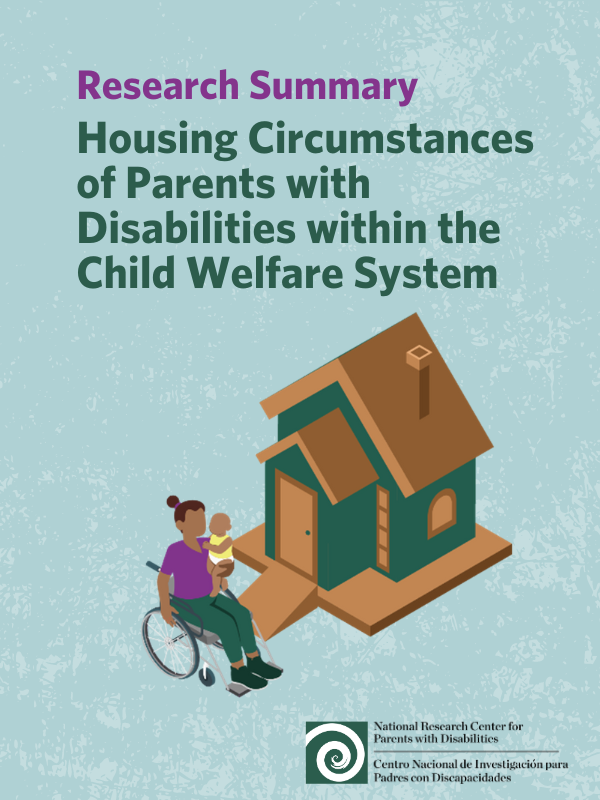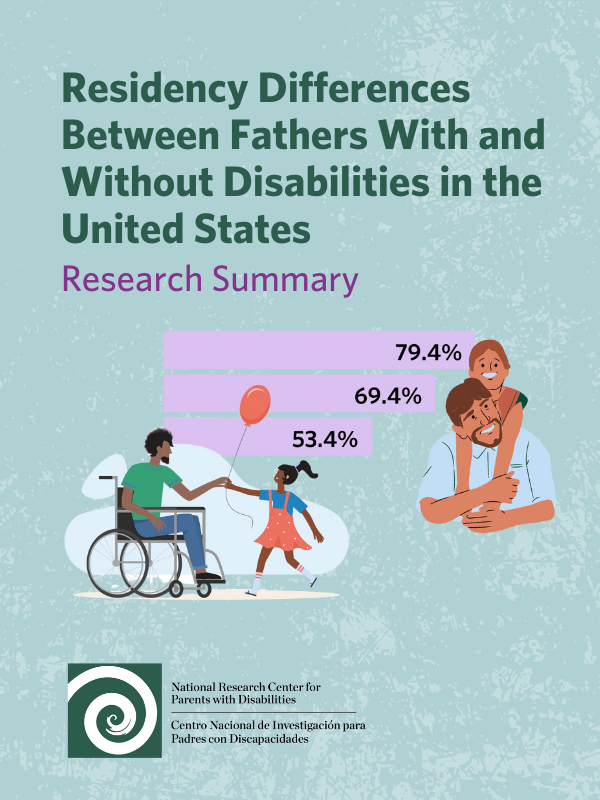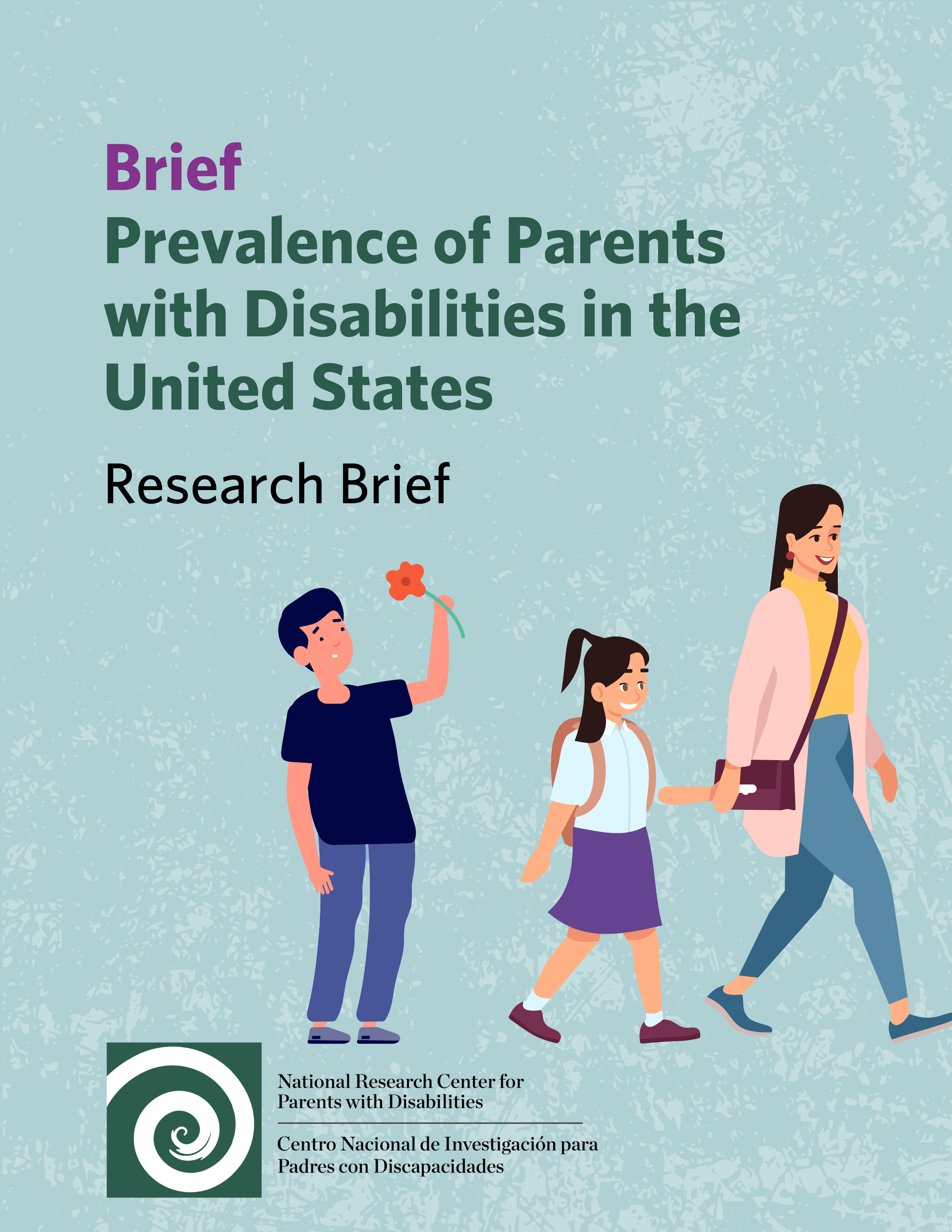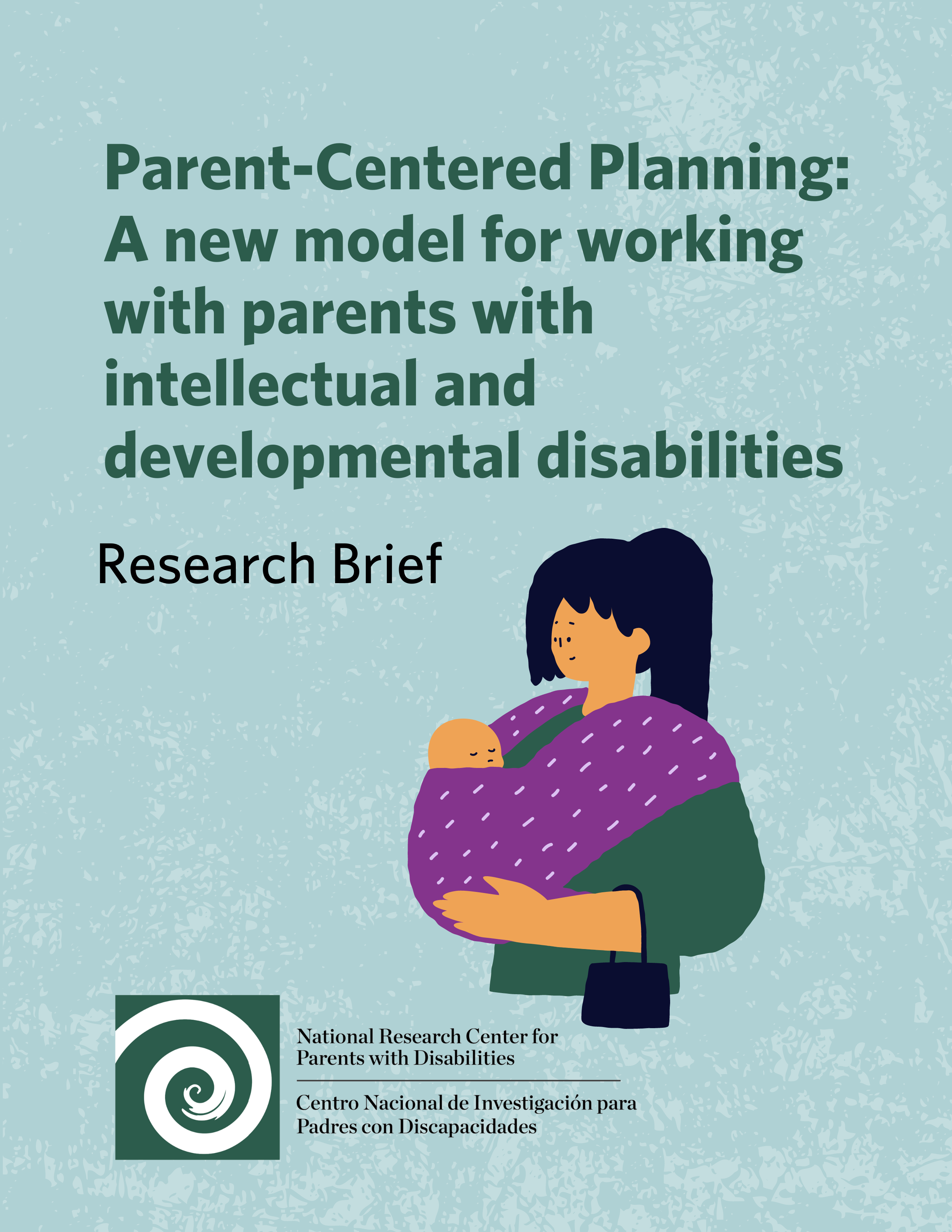Additional Resources and Information

Housing Circumstances of Parents with Disabilities within the Child Welfare System

Residency Differences Between Fathers With and Without Disabilities in the United States
This study examines the residential status of fathers by their disability status and explores whether fathers' residence with their children varies by different types of disability.

Prevalence of Parents with Disabilities in the United States
Researchers used American Community Survey 5-year data, 2016–2020, to gain accurate, detailed, and up-to-date information on the prevalence and characteristics of parents with disabilities, including racial and ethnic background and disability types. This information is necessary to implement adequate policies for disabled parents and their families.

Parent-Centered Planning: A new model for working with parents with intellectual and developmental disabilities
Researchers describe a model focused on parents that can be used by formal services systems, which often don’t acknowledge that adults with intellectual and developmental disabilities are increasingly becoming parents. As a result of failing to acknowledge this reality, these systems focus on these adults as individuals rather than also as parents or caregivers.

Behavioral and Cognitive Outcomes of Young Children in the United States Whose Mothers Have Intellectual Disabilities

The Economic Status of Parents with Serious Mental Illness in the United States

National Research Center for Parents with Disabilities Priorities Survey
The National Research Center for Parents with Disabilities surveyed 109 people—parents with disabilities and people who support them—to identify priorities for our future work. Respondents provided recommendations to address some of the challenges they experience. Their recommendations highlight three themes: training for professionals, peer support and community inclusion, and adaptive strategies and equipment.

Parents With and Without Disabilities: Demographics, Material Hardship, and Program Participation

Strategies and Resources for Deaf and Hard-of-Hearing Parents: A Scoping Review
Very little information exists about raising children as a deaf or hard-of-hearing parent—especially for hard-of-hearing parents, since most available articles and resources are geared toward hearing parents of DHH children, rather than DHH parents. DHH parents are already socially marginalized and have difficulty finding accessible information. These disparities sharply reduce opportunities for DHH parents to learn how to raise their children.
